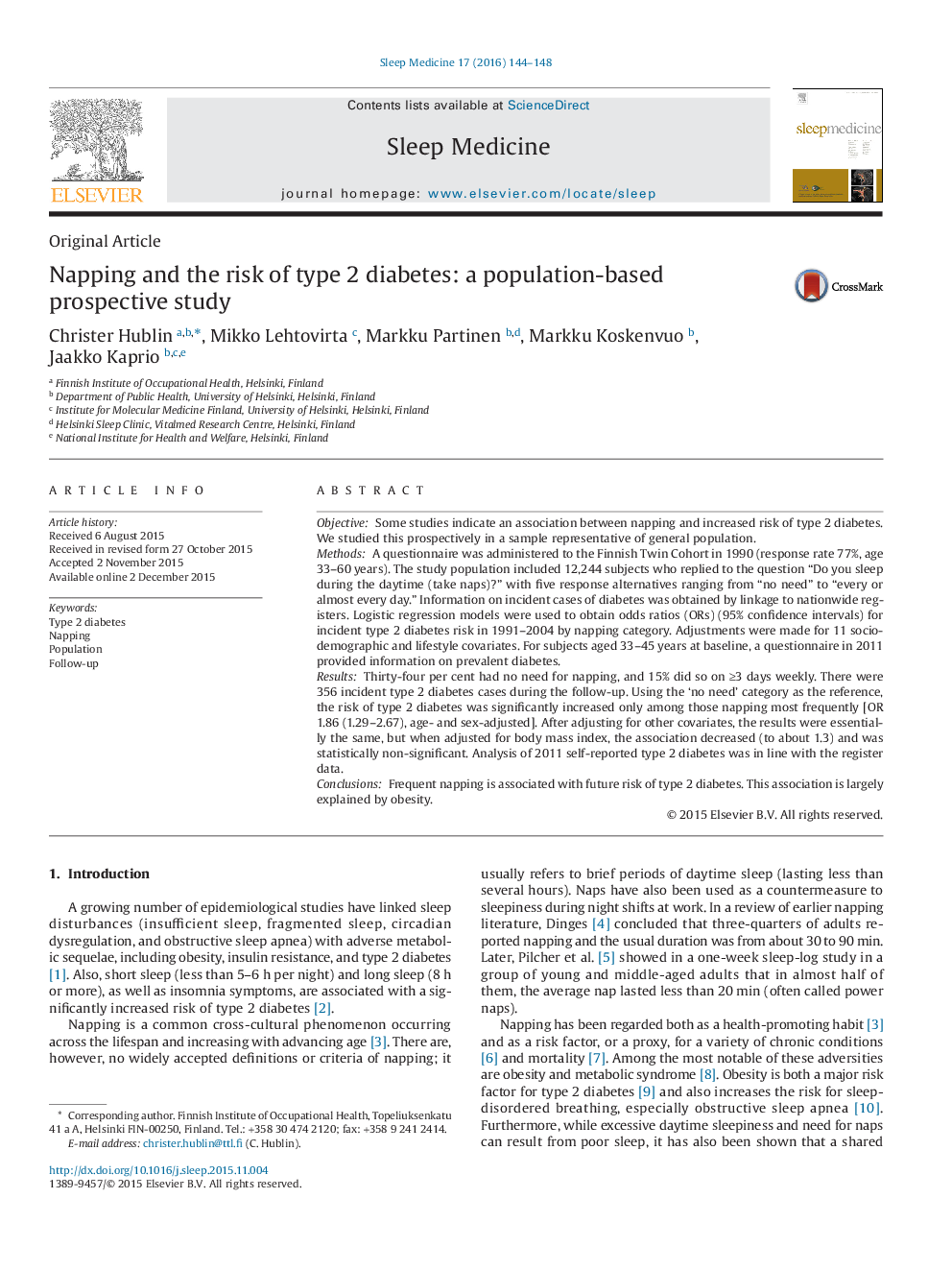| کد مقاله | کد نشریه | سال انتشار | مقاله انگلیسی | نسخه تمام متن |
|---|---|---|---|---|
| 6060642 | 1586491 | 2016 | 5 صفحه PDF | دانلود رایگان |
ObjectiveSome studies indicate an association between napping and increased risk of type 2 diabetes. We studied this prospectively in a sample representative of general population.MethodsA questionnaire was administered to the Finnish Twin Cohort in 1990 (response rate 77%, age 33-60 years). The study population included 12,244 subjects who replied to the question “Do you sleep during the daytime (take naps)?” with five response alternatives ranging from “no need” to “every or almost every day.” Information on incident cases of diabetes was obtained by linkage to nationwide registers. Logistic regression models were used to obtain odds ratios (ORs) (95% confidence intervals) for incident type 2 diabetes risk in 1991-2004 by napping category. Adjustments were made for 11 socio-demographic and lifestyle covariates. For subjects aged 33-45 years at baseline, a questionnaire in 2011 provided information on prevalent diabetes.ResultsThirty-four per cent had no need for napping, and 15% did so on â¥3 days weekly. There were 356 incident type 2 diabetes cases during the follow-up. Using the 'no need' category as the reference, the risk of type 2 diabetes was significantly increased only among those napping most frequently [OR 1.86 (1.29-2.67), age- and sex-adjusted]. After adjusting for other covariates, the results were essentially the same, but when adjusted for body mass index, the association decreased (to about 1.3) and was statistically non-significant. Analysis of 2011 self-reported type 2 diabetes was in line with the register data.ConclusionsFrequent napping is associated with future risk of type 2 diabetes. This association is largely explained by obesity.
Journal: Sleep Medicine - Volume 17, January 2016, Pages 144-148
